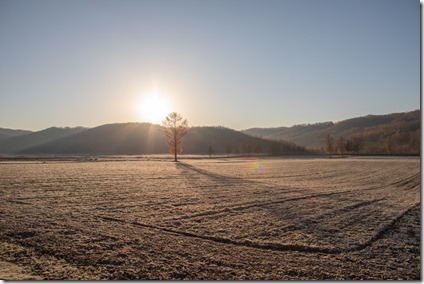 We had a refrigerator quit on us the other day. So I did what any 21st century cheapskate does, I went on my Google machine and researched how to fix it. After reading a dozen or so message boards and watching a few YouTube clips I became an expert on my fridge. I was 100% confident that it was the display panel itself that needed replaced. $100 and a couple weeks later my new part arrived. I installed it and…..
We had a refrigerator quit on us the other day. So I did what any 21st century cheapskate does, I went on my Google machine and researched how to fix it. After reading a dozen or so message boards and watching a few YouTube clips I became an expert on my fridge. I was 100% confident that it was the display panel itself that needed replaced. $100 and a couple weeks later my new part arrived. I installed it and…..
Nothing.
Still not fixed. Apparently it wasn’t the display panel but the actual control board—the $179 control board. I think. But I really don’t have much of a way of knowing because I do not actually have any expertise in electrical parts, refrigerators, or any other appliance. I do not have the proper tools to test these things nor do I have the experience to properly troubleshoot. All I have is the internet…and now a couple hundred bucks less and a broke fridge.
Now, it’s one thing for me to tinker with my own stuff. I am somewhat handy and at times have saved my family money by fixing something myself. But wouldn’t it be a much different story if I convinced my neighbor that I was an appliance expert (lots of experience on the internet) and had him throw $200 into my incompetence? That’s a moral issue. Not staying in your lane is one thing when it impacts you, it’s quite another when your “expertise” has an impact on others.
I am sharing this story to make a point that I hope other pastors will heed. I’m convinced that we do great damage to our ministries when we fail to stay in our lane. For one, we can end up losing credibility in the important things because we were wrong on lesser things. Secondly, we can do actual harm to others by giving poor advice in areas we shouldn’t be advising in. Lastly, we are shaking hands with an ideology that will inevitably cut our own legs out from under us.
It is this last reason that I will discuss today. Allow me to begin with a John Calvin quote and then explain my point.
Indeed, vanity joined with pride can be detected in the fact that, in seeking God, miserable men do not rise above themselves as they should, but measure him by the yardstick of their own carnal stupidity, and neglect sound investigation; thus out of curiosity they fly off into empty speculations. They do not therefore apprehend God as he offers himself, but imagine him as they have fashioned him in their own presumption. When this gulf opens, in whatever direction they move their feet, they cannot but plunge headlong into ruin. –John Calvin
This quote from John Calvin has been incredibly shaping to my ministry. I believe the principle behind it can be expanded far beyond mere theological issues. Calvin’s words here is what inspires me to be pretty silent on many of today’s pressing issues. It’s really rare for me to speak out on things like vaccines, mask wearing, the economics of shutting down, political structures, and a host of other things. I might speak on them when they converge with issues of morality, and I’ll most likely speak on them when it is connected to faithfulness in Christ. But if the Scriptures do not speak clearly on an issue I firmly believe that as a pastor I do well to stay in my own lane.
I do believe, though, that there are two movements in our day and age which make this especially difficult for the pastor—both as temptations from within and from without. One of these movements is the death of expertise. If you have the internet you have access to a world of information. With access to all this information people can quickly become “experts”. Tom Nichols has written an excellent book, The Death of Expertise, on this very topic. He’s certainly correct when he says this:
These are dangerous times. Never have so many people had so much access to so much knowledge and yet have been so resistant to learning anything.
The second movement is a renewed emphasis upon the sufficiency of Scripture. Normally I would celebrate this. But I would argue that what is being emphasized is in reality a distortion of this precious doctrine. Today this doctrine has been widened to almost teach that you cannot use other sources without denying the sufficiency of Scripture. That is simply not the historical understanding of the doctrine. Historically this doctrine means that the Bible is the only resource needed to tell us how to please God. I appreciate Piper’s definition:
In other words, the Scriptures are sufficient in the sense that they are the only (“once for all”) inspired and (therefore) inerrant words of God that we need, in order to know the way of salvation (“make you wise unto salvation”) and the way of obedience (“equipped for every good work”). The sufficiency of Scripture does not mean that the Scripture is all we need to live obediently.
I think we pastors may be especially prone to latch onto the widening of this doctrine as expertise begins to die. If you cannot trust your doctor perhaps you can trust your pastor who holds the words of life. The logic looks something like this:
The Bible is sufficient in all things
Your pastor knows the Bible.
Therefore, your pastor is sufficient in all things.
The example I gave earlier of trying to fix my refrigerator is effective in showing why this proposition is ridiculous. Of course just because I’ve given my life to studying God’s sufficient Word it doesn’t mean that I’m now competent to fix my fridge. It’s easy to see how ridiculous that is. But for some reason it gets a bit more difficult when we start talking about political structures, biology, mental health, and a host of other issues that at least have some convergence with the Scriptures. But the principle is the same.
Consider this statement: “The Bible says all we need to know about medicine.”
How does the sufficiency of Scripture interact with that statement? Is it true? Historically speaking the doctrine of the sufficiency of Scripture would say something like, “The Bible says all we need to know in regards to pleasing God with our use/disuse of medicine.” That is a much different statement. The Bible does not say all there is to say about medicine. But where it does speak it does so authoritatively AND with the purpose of pleasing God. Yet there are many things to which the field of medicine speaks where the Bible is simply silent. That statement shouldn’t make us any more comfortable than saying that the Bible doesn’t tell you how to fix your fridge.
Now connect this with that John Calvin quote I shared earlier. When we have a scientific breakthrough which the Bible is silent on, what is the wise pastor to do? Certainly he is within his human rights to say, “I don’t agree with the science of this. I’m not convinced this is healthy.” But he is not able to say so with pastoral authority. Unless this pastor also happens to have a medical license he does not speak as an expert. Why? Because the Bible does not speak to this particular issue. That is the pastor’s field. Therefore, the wise pastor will stay in his lane on the issue.
When pastors dismiss experts in other fields they are unknowingly cutting off their own legs. We do not benefit from the death of expertise. Why? John Newton gives us the answer:
That sovereign power, which the Independents assume over their ministers, appears to me too great to be trusted in such hands. If a man ranks as member of a Church of Christ, however ignorant, illiterate and illiberal he may be, though he has seen and known nothing beyond the bounds of his parish, though his temper be sour, and his spirit obstinate as a mule, still he thinks himself both qualified and authorized to teach his pastor. Half a dozen persons of this description are sufficient to make a minister and a whole congregation uneasy through life. Whatever burden we are supposed to have in the Establishment, we are free from this. And I would be thankful for it. (Wise Counsel, 223)
The priesthood of the believer is a glorious doctrine. But this beautiful doctrine does not flatten the importance of spiritual gifts and roles within the body of Christ. If you’ve set one apart for the work of ministry such a one is supposed to become an “expert” in the field of preaching and prayer. In one very real sense, when expertise dies so does the pastorate.
This is why I say when pastors dismiss experts they are cutting off their own legs. You’re assisting in the killing of expertise. What is sad in this particular cultural moment is that we pastors have been given a great opportunity to model how to helpfully engage with experts in other fields.
It’s okay to disagree. It’s okay to voice disagreement. But do you realize what you’re doing to your own ministry when you call experts in other fields “idiots, morons, etc.”? When you dismiss their research without humbly engaging it, do you realize what you’re training your congregation to do with your work?
It’s best to stay in our own lane. And when we have to merge in and out of our own field it is best to do so with humility. Let’s give our energy to that which we hold exclusively—the life-changing gospel of Jesus Christ. And let’s not overextend that gospel in such a way that it mutes the areas where it is principally concerned.
—
Photo source: here
Like this:
Like Loading...
 Person A: “Bro, you can’t eat meat sacrificed to idols. If you keep doing this then I cannot in good conscience be around you.”
Person A: “Bro, you can’t eat meat sacrificed to idols. If you keep doing this then I cannot in good conscience be around you.” 

